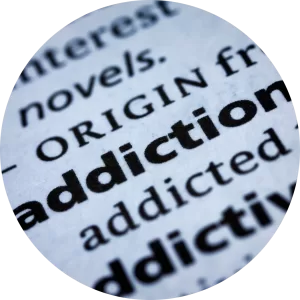- WE MOVED !!!
-
 Professional Acupuncture & Physical Therapy1118 East Superior Street
Professional Acupuncture & Physical Therapy1118 East Superior Street
Duluth, MN 55802(218) 724-3400 Clinic Hours
Mon8:00 am - 4:30 pmTue1:45 pm - 4:30 pmWed8:00 am - 4:30 pmThu8:00 am - 4:30 pmFriCLOSED

- Long Covid Booklet
Traditional Chinese Medicine
Traditional Chinese Medicine and Breast Cancer

According to the Worldwide Breast Cancer Association, breast cancer affected nearly 1.5 million women and men in 2010. And unfortunately, that number hasn’t decreased by much since then. Breast cancer is the most common cancer in women, worldwide. The United States and the United Kingdom have the highest incidence rates globally, primarily due to excessive exposure to toxic chemicals and improper health habits. Because of this, regular screening is highly recommended. But what should you do if you already have or have had breast cancer? Consider incorporating Traditional Chinese Medicine and acupuncture into your healthcare routine.
Using sterile, hair-thin needles and placing them into specific pressure points on the skin, a licensed acupuncturist can tremendously affect the way a person’s body deals with cancer cells or the sometimes harsh medical treatments you may be undergoing to fight the disease. Acupuncture stimulates the nervous and immune systems to release natural painkillers and infection fighters. Studies have shown acupuncture can help relieve fatigue, control hot flashes, decrease nausea and vomiting and decrease pain levels.
Acupuncture is just one facet of TCM.
There are other practices, such as tai chi or qi gong that can help keep you healthy or increase your immunity while fighting a disease. Research confirms that being too sedate and inactive can actually contribute to the body becoming diseased. Everybody has cancer cells in their bodies. But these cells only proliferate when given the right set of conditions. By incorporating things like qi gong or tai chi, you can still get the exercise your body needs, which helps increase long-term immunity, thus warding off disease.
For those who are already suffering from breast cancer, Traditional Chinese Medicine can indeed help. If surgery has been performed to remove the tumor(s), acupuncture along the scar lines can stimulate blood flow, relieve pain and increase mobility that may have otherwise been impeded due to skin tightness. Acupuncture treatments can increase collagen in the skin and this helps relieve added tension along the scar lines. This can also allow for cancer patients to undergo more aggressive physical therapy that will help them heal faster and return to a normal life.
 Most cancer patients who opt for chemotherapy and radiation also become severely immunocompromised, making it harder for them to recover and more susceptible to other infections. Utilizing acupuncture during and after cancer treatments can be very beneficial and stimulate the body’s immune system. However, receiving acupuncture treatments as preventive care, just like eating healthy foods, can help keep the body free from disease to begin with. And once the cancer is in remission, continuing with regular acupuncture treatments will increase the immune system’s ability to remain strong.
Most cancer patients who opt for chemotherapy and radiation also become severely immunocompromised, making it harder for them to recover and more susceptible to other infections. Utilizing acupuncture during and after cancer treatments can be very beneficial and stimulate the body’s immune system. However, receiving acupuncture treatments as preventive care, just like eating healthy foods, can help keep the body free from disease to begin with. And once the cancer is in remission, continuing with regular acupuncture treatments will increase the immune system’s ability to remain strong.
Breast cancer is no laughing matter and it can be a death sentence. But it doesn’t have to be. While mammography is the standard form of early detection, thermography is a much safer option and it is gaining ground. Thermography is a tool that monitors breast health, assesses breast cancer risk and does not expose the patient to radiation. These are all things that mammography cannot do. Along with the use of early detection, regular acupuncture treatments can greatly increase the chances of never hearing those words from your doctor, “You have breast cancer.” So what are you waiting for?
Give us a call today at (218) 724-3400 to start your preventive care!
6 Ways to Help Alleviate Addiction

Meditation
Mindfulness is an important practice for overcoming addiction. Taking the time to become aware of our body and mind and self-reflect is important in the process of recovery. Meditation, whether or not it’s just five minutes a day of deep breathing in a quiet place, can help keep the mind at ease and decrease negative thoughts that could trigger relapse. Meditation is an easy way to regulate mood and lower stress.
Yoga
Yoga incorporates poses with deep breathing and meditation. Not only is this practice good for the body but the mind as well. Yoga promotes well being through poses that are intended to decrease stress and anxiety. Yoga of Recovery offers retreats and classes integrated into a 12-step recovery program. Retreats are done all over the world.
Acupuncture
Acupuncture treatment has been proven to help addiction. Acupuncture can help reduce stress, anxiety and depression and increase the release of endorphins, which can help fight addiction. Treatment has been shown helpful for alcohol, opium, heroin, cocaine and tobacco dependency.
Gardening Therapy
Gardening therapy can be used for many reasons to promote mental well being. Gardening can prove to be a relaxing activity that gives a sense of purpose. Research has shown that gardening can lower irritation, improve self-esteem, lower anxiety and depression and improve concentration.
Exercise
Exercise is a must when it comes to recovering from an addiction. Not only is physical activity great for the body but for mental health as well. Exercise releases endorphins to fight cravings as well as lowers anxiety and depression. Adding in just 20 minutes of some sort of activity whether it is running, swimming or walking can help boost your mood and help you on the path to recovery.
Animal therapy
Having a pet has been proven beneficial in many ways for mental health. Studies suggest that those with an animal companion have lower stress, anxiety, depression and lower blood pressure. Animal therapy such as riding horses has also been proven effective and helps recovering addicts focus on caring for someone else.
Sources:
http://bit.ly/1TJ1Pz7
http://bit.ly/1XqH0GE
Patterns of Discrimination for Colon Cancer

Colon cancer is the third most commonly diagnosed cancer in the United States. The American Cancer Society estimates 136,000 people will be diagnosed with colon cancer in 2017 and nearly 50,000 of those will actually die from the disease. At least half of the people who develop colon cancer have some sort of existing risk factor. The other half may get colon cancer due to unfavorable diet, lifestyle or habits.
Regardless of the reason, Western medicine typically treats each case the same way. Surgery is the first line of defense, followed by chemotherapy and radiation therapy. All of these tactics can be quite risky and have a multitude of adverse side effects.
Traditional Chinese Medicine treats each person on an individual basis. This means despite the Western medical diagnosis, the patient will receive special individualized care. TCM also differentiates the various causes of colon cancer based on the underlying contributing factors that have created the disease. There are at least four possible different patterns of discrimination for colon cancer in the Chinese medicine world. Each pattern is associated with a specific energetic meridian and organ system, as well as some sort of causative factor, such as damp heat.
The first possible pattern involves the large intestine pathway being invaded by damp heat. With this pattern, the patient may have diarrhea, mucus or blood in the stools; foul smelling stools, a burning anus, fever, sweating, heaviness of the limbs and thirst without a desire to drink. This can be caused by ingesting too many hot and greasy foods, accompanied by excessive worry and anxiety over a long period of time. The treatment would involve clearing the heat and draining the dampness. The patient would also need to make some lifestyle changes.
The next possible pattern involves the spleen energetic pathway. The spleen system does not like cold. Thus, when the system is invaded by constant cooling, the yang or fire becomes depleted. The pattern is known as spleen yang deficiency. Symptoms of spleen yang deficiency include lack of appetite, abdominal distention after eating, fatigue, loose stools with undigested food, cold limbs, chilliness and edema. The treatment would involve warming and boosting the spleen yang.
The third possible pattern involves the kidney system. As with the spleen, when the kidney system is exposed to excessive cold conditions or the yin (water) is excessive, the yang of the kidney system can be depleted. The symptoms of kidney yang deficiency include chills, aversion to cold, cold limbs, apathy, lethargy, weak or cold knees and soreness in the lumbar region. The treatment would involve warming and boosting the kidney yang energy.
The last possible pattern also involves the kidney system, but this time it is the opposite of the aforementioned pattern. Kidney yin deficiency occurs when there is too much fire and not enough water, which creates excess heat. Symptoms of this pattern include hot palms, night sweats, constipation, thirst, sore knees and dark urine. The treatment would involve cooling and sedating the kidney yang, while boosting the kidney yin energy.
No matter what the pattern, acupuncture and TCM can help, provided the diagnosis takes place early. This is why acupuncture should be used in a preventive fashion.
Main Symptoms as They Relate to Colon Cancer Patterns
There are five different diagnostic patterns associated with colon cancer. Each separate diagnostic pattern has its own set of symptoms linked to it. Read below to figure out which main symptoms relate to certain colon cancer diagnostic patterns.
- Large Intestine Damp Heat
Abdominal pain, diarrhea, mucus and blood in the stool and heavy sensation in the body and limbs are all signs of Large Intestine Damp Heat.
- Spleen Yang Deficiency
Cold limbs, tiredness, pale complexion, weakness of the limbs and loss of appetite are all signs of Spleen Yang Deficiency.
- Kidney Yang Deficiency
Spiritual fatigue, declining libido, difficulty in urination, enuresis and general edema are all signs of Kidney Yang Deficiency.
- Kidney Yin Deficiency
Afternoon or evening sweats, dry mouth, achy lower back, tinnitus and aching bones are all signs of Kidney Yin Deficiency.
- Liver Yin Deficiency
Blurred vision, numbness, brittle nails, vertigo and flank pain are all signs of Liver Yin Deficiency.
Acupuncture and Addiction

Addiction affects millions of Americans each year. Whether it’s substance abuse from alcohol, nicotine or other drugs, addiction is a disease that takes treatment and commitment to overcome. Many times, rehabilitation doesn’t work the first time, but takes many tries to really kick a habit for good. Acupuncture has been proven to be an effective alternative option that can help treat addiction.
A study done by researchers at Yale University found that around 55 percent of cocaine addicts seeking rehab who were treated with auricular acupuncture were tested clean during their last week of treatment compared to only 23.5 percent that did not. Auricular acupuncture involves the placement of five needles in the outer part of each ear, left in place for about 30 minutes. These points on the body specifically are focused on to treat addiction. These points result in a release of endorphins, the body’s natural painkiller. When this happens, cravings can decrease.
According to the Huffington Post, more than 2,000 drug and alcohol treatment programs in the U.S. have used ear acupuncture as part of their treatment plans. Ear acupuncture, known as micro-acupuncture, has been proven effective in treating and helping curb addiction. Lincoln Hospital in New York delivered 100 acupuncture treatments a day for over 35 years as a part of their substance disorder program, finding patient’s anxiety and agitation were reduced, as well as reaching patients who were reluctant to attend treatment programs.
 The American Cancer Society also acknowledges acupuncture as a method for quitting smoking. Acupuncture treatment can help reduce symptoms of withdrawal such as cravings, irritability, jitters and anxiety. A study from the University of Oslo, Norway, found that acupuncture reduced the desire to smoke as well as reduced the craving for the flavor of cigarettes for up to five years after treatment.
The American Cancer Society also acknowledges acupuncture as a method for quitting smoking. Acupuncture treatment can help reduce symptoms of withdrawal such as cravings, irritability, jitters and anxiety. A study from the University of Oslo, Norway, found that acupuncture reduced the desire to smoke as well as reduced the craving for the flavor of cigarettes for up to five years after treatment.
Acupuncture works by addressing the body as a whole and getting to the root of the problem. Each acupuncture point is based on the meridian system, the body’s natural energy system in which Qi flows through. When there is a blockage in this system, the body cannot function properly. Acupuncture points work to release these blockages and return the body back to balance and health.

